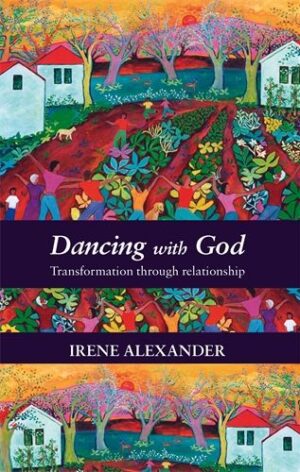



This chapter explains how important our childhood is in forming us into a way of living, a way of seeing right and wrong, a way of compliance to authority.
Pause and think about your childhood.
How did your parents teach you right and wrong? In what ways do you still comply to your childhood code of behaviour? In what ways have you rebelled against it?
How did the authority exercised by your parents affect your image of what God is like?
Share something of your response with the group.
Reflect on Donald Winnicott’s recognition that we form a false self to protect the true self. See if you can recognise where your true self has been hidden in order to protect your vulnerability. This may be a story from childhood, or even a recent story. Where do I hide the truth of my reality from the judgement of others, even from God?
Have one person read the poem by Hafiz out loud to the group. Poems often draw an image that speaks to us more deeply than just words. In what ways have you been freed from “a thousand serious moves” to a joyful surrender?
Richard Rohr comments that the mystics are the ones who are not taken in by the false self construct, not asking the question so often repeated by most of us: “Am I doing ok?” The other group he says, are the broken ones, the ones who know they cannot earn approval – either from people or from God. When we think about who it was that flocked around Jesus we see that it was not the righteous, religious ones. It was the excluded, the broken, the marginalised, the sinners. These are the ones who look at all the religious requirements, the church expectations, the morally correct way, and simply say “I can’t do it.” Unless I can simply fall into the arms of a loving God, there’s no way I can get there.” The wonderful, good news here is that all of us have some part of us that is broken, ashamed, not good enough, and that part of us can lead us to fall into God’s arms.
Take some time to reflect on two experiences. Or for some of us it may be the same one.
Is there a part of you that is broken, that is ashamed, that feels unable to ever measure up? What would it be like to bring that part of myself along with the man with the shrivelled hand, or the women taken in adultery, right into Jesus’ presence, and to watch his response?
The other part of the reflection is to follow the explanation on page 19: to remember a time when I felt deeply loved, deeply accepted in the totality of who I am. Basil Pennington suggested this might have been the first time we fell in love.
This exercise is aimed at helping us find our true self by bypassing the self-righteous false-self, the part of us that is so practised in earning acceptance and approval, the part that hides us from others and even from ourselves.
Pause here in the exploration on the true self, false self chapter. Chapter 5 is a story of a woman who tells of what her response might have been to the exercise above. The story starts at the bottom of page 27: “Joanna, let me tell you about this man I met.” It’s the story of a woman who knows herself broken, knows that unless she can just fall into God’s arms there is no hope for her. Yet she is the one Jesus praises in front of the Pharisees. She is the one to whom he says, “Your faith has saved you.”
As you listen to the story imagine yourself as this woman. One who, for whatever reason, was a “sinner” a woman of the streets. Imagine yourself in the presence of all of those who would criticise and judge you. And keep your eyes on Jesus face, the only place to look for understanding and acceptance.
At the end of the story reflect on what it is like to come to Jesus in open acknowledgement of your imperfection, and of your need. What is it like to let the critical judgemental parts of your self be silenced by Jesus’ love and acceptance? What will you take away from this story into your everyday life? How will you support others in the group to live in this place of transparency and trust? As you identify with this woman are you also able to notice and practice gratitude. One of the spiritual disciplines is to find something at the end of each day for which you can thank God.
Back to the dance between true self and false self on page 22. This section of the chapter is exploring how we each practice staying in – or returning to – the true self. The reality is that we dance between, and if we can learn to notice what sends us back to the false self we are more able to live in the freedom of the true self. The question is asked what practices or spiritual disciplines help us find ourselves in the true self, in the arms of our loving God. For many of us it is creation, or silence, or worship.
Take some time to reflect on what helps you and to share one thing with the group.
The opposite question is what sends us to a false self position, to putting on our masks. The temptations faced by Jesus in Matthew 4 is a good starting place. As you note each one notice how these affect you. Is the need for safety and security something which triggers you into putting on our mask of good behaviour and acceptability for fear of danger, either physical or psychological? What about the need for esteem , popularity, acceptance or approval? Does it matter to us what people think of us? Most of us have been schooled to need the approval of others. And thirdly what about the need for power or control? What happens when we feel powerless.
Reflect on which of these needs can be a trigger for you to step out of freedom. Share with the group which needs are likely to be the ones to trip you up in the dance to live in the true self.